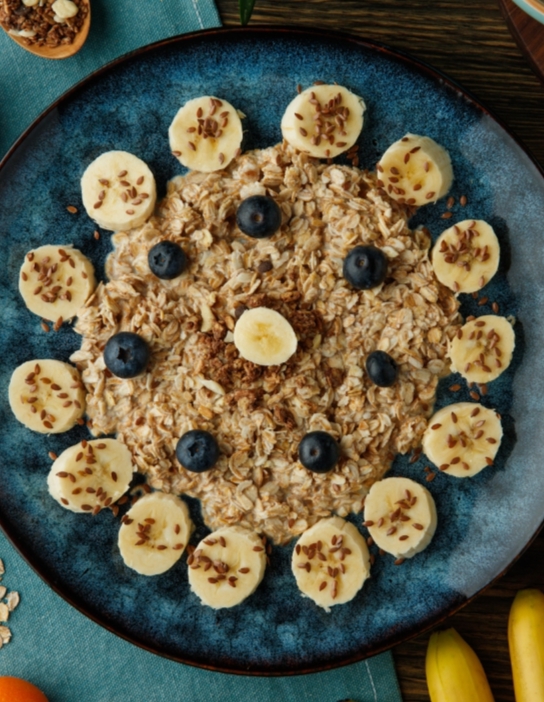Weight Loss: A Path to Better Health and Wellness
Losing weight is more than just a desire for a slimmer appearance—it’s about improving overall health, boosting energy levels, and enhancing quality of life. While the process can feel overwhelming, with the right approach, it’s achievable for anyone.
Weight Loss: A Path to Better Health and Wellness
Losing weight is more than just a desire for a slimmer appearance—it’s about improving overall health, boosting energy levels, and enhancing quality of life. While the process can feel overwhelming, with the right approach, it’s achievable for anyone.
Understanding the Basics of Weight Loss
Weight loss happens when your body burns more calories than you consume. While this might sound simple, it’s influenced by various factors, including diet, physical activity, metabolism, and even mental health. The goal is to create a lifestyle that supports sustainable weight management rather than relying on quick fixes.
Step 1: Eating for Nutrition, Not Just Weight Loss
Food is fuel for your body, and the quality of that fuel matters. To lose weight effectively:
Focus on Whole Foods: Fresh fruits, vegetables, lean proteins, whole grains, and healthy fats should be staples in your diet.
Weight loss happens when your body burns more calories than you consume. While this might sound simple, it’s influenced by various factors, including diet, physical activity, metabolism, and even mental health. The goal is to create a lifestyle that supports sustainable weight management rather than relying on quick fixes.
The Ultimate
Weight loss is a goal many people aspire to achieve for various reasons, including improving health, enhancing appearance, or boosting self-confidence. However, the journey to effective and sustainable weight loss can feel overwhelming. This guide will provide you with practical, science-backed strategies to help you succeed.
1. Understanding Weight Loss

At its core, weight loss happens when you burn more calories than you consume, creating a calorie deficit. This deficit can be achieved through a combination of dietary changes, increased physical activity, and lifestyle adjustments. However, the quality of the food and the sustainability of your habits matter just as much as the calorie count.
2. Set Realistic Goals
It’s essential to set achievable and measurable goals. Instead of aiming to lose a large amount of weight quickly, focus on losing 1-2 pounds per week. This rate is considered healthy and sustainable by most health experts.
3. Create a Balanced Diet
A balanced diet is key to weight loss. Focus on:
Protein: Supports muscle repair and keeps you full longer (e.g., lean meats, eggs, tofu, lentils).
Healthy Fats: Necessary for brain function and hormone regulation (e.g., avocados, nuts, olive oil).
Complex Carbohydrates: Provide sustained energy (e.g., whole grains, vegetables, fruits).
Fiber: Promotes satiety and aids digestion (e.g., vegetables, fruits, legumes).
Limit highly processed foods, sugary drinks, and excessive alcohol consumption. Instead, opt for nutrient-dense whole foods that fuel your body.
4. Practice Portion Control
Overeating healthy foods can still lead to weight gain. Use tools like measuring cups, a food scale, or your hand to estimate portion sizes. Eating mindfully—paying attention to hunger and fullness cues—can also prevent overeating.
5. Stay Active
Regular physical activity boosts your metabolism and helps you burn calories. Aim for a mix of:
Cardio: Activities like running, cycling, or swimming improve heart health and burn calories.
Strength Training: Builds muscle, which increases your resting metabolic rate.
Flexibility and Balance Exercises: Yoga or stretching can improve overall fitness and reduce the risk of injury.
Start with activities you enjoy to create a sustainable exercise habit.
6. Prioritize Sleep
Sleep is often overlooked in weight loss journeys, but it’s crucial. Lack of sleep disrupts hormones like ghrelin and leptin, which control hunger and appetite, potentially leading to overeating. Aim for 7-9 hours of quality sleep per night.
7. Manage Stress
Chronic stress can lead to emotional eating and hormonal imbalances that hinder weight loss. Incorporate stress-reducing activities like meditation, deep breathing, or hobbies that bring you joy.
8. Hydrate Properly
Sometimes, thirst can be mistaken for hunger. Drinking enough water not only supports metabolism but also helps you feel full. Aim for at least 8 cups of water daily, more if you’re active.
9. Track Your Progress
Keeping a food journal or using apps to log meals and workouts can help you stay accountable. Celebrate small milestones to stay motivated, but avoid obsessing over daily weight fluctuations, as these can be influenced by water retention, hormones, and other factors.
10. Seek Support
Weight loss can be challenging, but you don’t have to do it alone. Joining a support group, working with a dietitian, or sharing your goals with friends and family can provide encouragement and accountability.
Conclusion
Weight loss is a journey that requires patience, persistence, and self-compassion. By focusing on sustainable lifestyle changes rather than quick fixes, you can achieve lasting results and improve your overall well-being. Remember, your health is a lifelong investment—treat your body with the care it deserves.
The Ultimate Guide to Weight Loss: Achieving Sustainable Results
Weight loss is a goal many people aspire to achieve for various reasons, including improving health, enhancing appearance, or boosting self-confidence. However, the journey to effective and sustainable weight loss can feel overwhelming. This guide will provide you with practical, science-backed strategies to help you succeed.